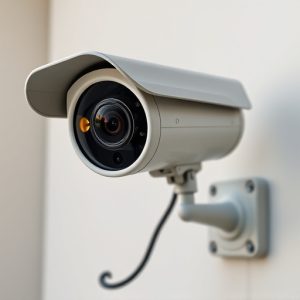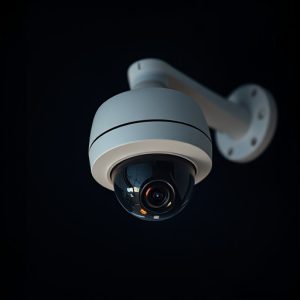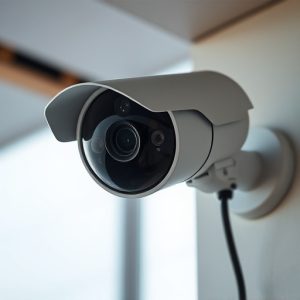Dummy Cameras with Night Vision: Deterrent Security Solutions
Fake CCTV with infrared night vision enhance security through strategic placement as powerful deterr…….
Fake CCTV with infrared night vision enhance security through strategic placement as powerful deterrents. They create a psychological effect, warning intruders of surveillance and reducing crime rates. These cameras capture clear images in darkness and offer peace of mind to homeowners and improved safety for businesses. However, their use must comply with privacy laws and ethical considerations, balancing public safety with individual privacy rights.
In today’s digital era, enhancing security has become paramount. One innovative solution gaining traction is the use of dummy cameras with infrared night vision, colloquially known as fake CCTV. This article delves into the multifaceted world of these devices, exploring their role in deterring crime through strategic placement. We’ll dissect various types, benefits for both home and business security, and address legal considerations to provide a comprehensive guide on leveraging fake CCTV as a deterrent.
- Understanding Fake CCTV: A Deterrent's Role
- Types of Dummy Cameras and Their Features
- Benefits and Applications in Home and Business Security
- Legal Considerations and Ethical Implications
Understanding Fake CCTV: A Deterrent's Role
Fake CCTV, or dummy cameras with infrared night vision, serve a crucial role in enhancing security and deterring potential criminals. Their strategic placement can act as a powerful psychological tool to deter unwanted activities. These fake cameras mimic real surveillance equipment, tricking intruders into believing they are under constant observation. This perception of increased risk often leads to altered behavior and can significantly reduce the likelihood of crime.
When used effectively, dummy CCTV can be a game-changer for property owners and businesses. By strategically positioning these devices in visible areas, individuals may feel less inclined to engage in illegal activities, knowing that even if their actions go unnoticed, the presence of these cameras is a strong deterrent. This simple yet powerful measure can contribute to creating a safer environment.
Types of Dummy Cameras and Their Features
Dummy cameras, also known as fake CCTV, come in various types, each designed with specific features to suit different security needs and preferences. One popular variety is the infrared (IR) night vision dummy camera. These cameras mimic real CCTV systems by featuring a lens, a housing that resembles a real camera, and an LED indicator light. What sets them apart from genuine cameras is their lack of actual video recording capabilities; instead, they use advanced IR technology to detect movement at night or in low-light conditions. This feature makes them highly effective as deterrents, especially for Fake CCTV Placement for Deterrence purposes.
Other types include weatherproof models designed to withstand outdoor elements, wireless options offering flexibility and ease of installation, and even solar-powered cameras that can be strategically placed without the need for power outlets. Some advanced dummy cameras come with motion sensors and alert systems, simulating real surveillance, while others have adjustable camera angles to capture a broader field of view. These diverse options cater to various security levels and budgets, ensuring property owners have effective yet cost-efficient solutions for enhancing their home or business security.
Benefits and Applications in Home and Business Security
Dummy cameras with infrared night vision offer significant benefits in enhancing home and business security. One of their primary advantages is the element of deterrence they provide. Strategically placed, these fake CCTV devices can significantly reduce crime rates by making potential intruders aware that they are under surveillance, even during the dark hours when visibility is limited. This psychological effect acts as a powerful deterrent, encouraging would-be criminals to opt for easier targets.
Moreover, infrared night vision allows these dummy cameras to capture clear images and videos in complete darkness, ensuring round-the-clock monitoring. This feature is particularly valuable in poorly lit areas or during power outages when traditional security systems might fail. For homeowners, it provides peace of mind knowing that their properties are constantly monitored, while businesses can benefit from improved asset protection and enhanced employee safety.
Legal Considerations and Ethical Implications
The use of dummy cameras, particularly those equipped with infrared night vision, raises several legal and ethical considerations. While these devices are marketed for deterring crime through the illusion of constant surveillance, their placement must adhere to strict regulations regarding privacy and security. Using fake CCTV for deterrent purposes is generally legal in many jurisdictions, as long as they do not mislead people into believing they are real security cameras monitored by authorities. However, local laws vary, and it’s crucial to understand the specific rules around dummy camera usage before installation.
Ethically, the use of such devices requires a nuanced approach. While they may discourage criminal activity, there is a risk of over-surveillance and potential invasion of privacy, especially if installed in public spaces without clear notice. It’s essential to balance public safety goals with individual rights and ensure transparency regarding the presence of dummy cameras. Additionally, these devices should not be relied upon as a sole security measure but rather integrated into a comprehensive surveillance system that respects legal and ethical boundaries.
Dummy cameras with infrared night vision, or fake CCTV, offer a cost-effective and strategic solution for enhancing security. By strategically placing these devices, particularly in high-risk areas, individuals and businesses can create the illusion of constant surveillance, serving as a powerful deterrent against potential criminals. While ethical considerations must be addressed, when used responsibly, fake CCTV can play a significant role in maintaining a safer environment. Understanding its benefits and legal boundaries empowers property owners to make informed decisions regarding their security measures.


